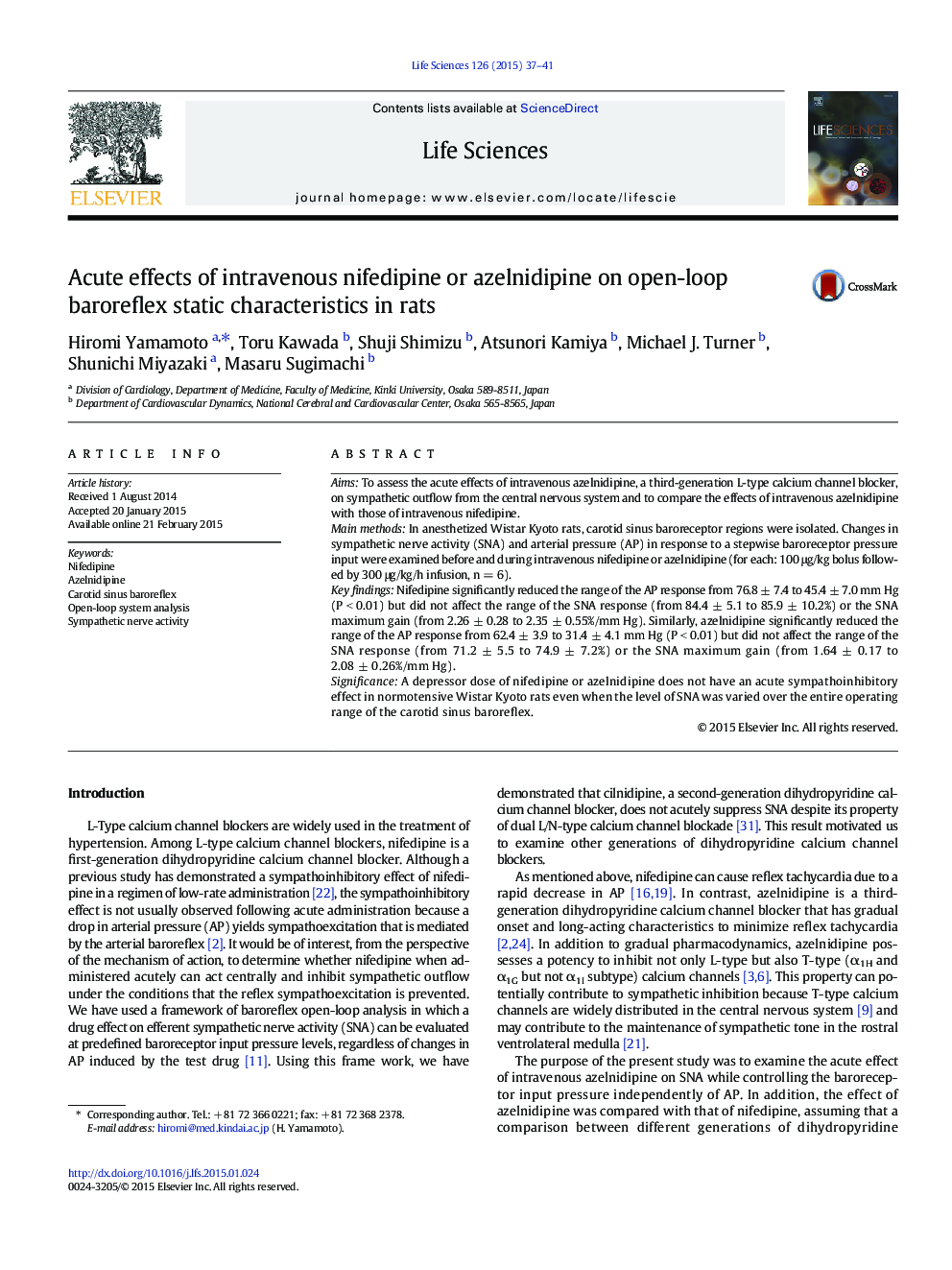| Article ID | Journal | Published Year | Pages | File Type |
|---|---|---|---|---|
| 2550961 | Life Sciences | 2015 | 5 Pages |
AimsTo assess the acute effects of intravenous azelnidipine, a third-generation L-type calcium channel blocker, on sympathetic outflow from the central nervous system and to compare the effects of intravenous azelnidipine with those of intravenous nifedipine.Main methodsIn anesthetized Wistar Kyoto rats, carotid sinus baroreceptor regions were isolated. Changes in sympathetic nerve activity (SNA) and arterial pressure (AP) in response to a stepwise baroreceptor pressure input were examined before and during intravenous nifedipine or azelnidipine (for each: 100 μg/kg bolus followed by 300 μg/kg/h infusion, n = 6).Key findingsNifedipine significantly reduced the range of the AP response from 76.8 ± 7.4 to 45.4 ± 7.0 mm Hg (P < 0.01) but did not affect the range of the SNA response (from 84.4 ± 5.1 to 85.9 ± 10.2%) or the SNA maximum gain (from 2.26 ± 0.28 to 2.35 ± 0.55%/mm Hg). Similarly, azelnidipine significantly reduced the range of the AP response from 62.4 ± 3.9 to 31.4 ± 4.1 mm Hg (P < 0.01) but did not affect the range of the SNA response (from 71.2 ± 5.5 to 74.9 ± 7.2%) or the SNA maximum gain (from 1.64 ± 0.17 to 2.08 ± 0.26%/mm Hg).SignificanceA depressor dose of nifedipine or azelnidipine does not have an acute sympathoinhibitory effect in normotensive Wistar Kyoto rats even when the level of SNA was varied over the entire operating range of the carotid sinus baroreflex.
